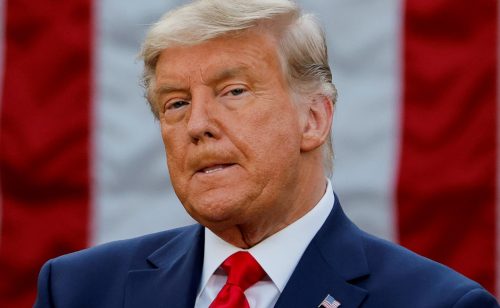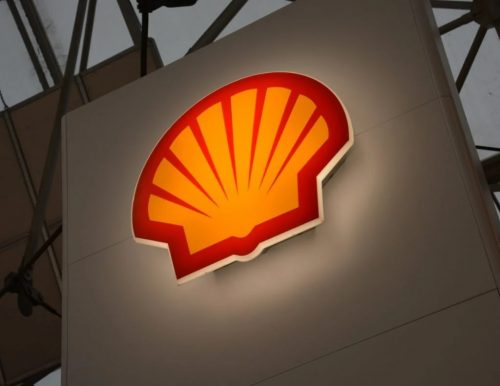Read in this article
- The Iranian Mabna Company is the largest beneficiary of the Rumaila power station in Iraq
- The Rumaila power station is preparing to supply a project supported by Shell
- Mapna is evidence of Iranian penetration in the Iraqi energy sector
- The Shell joint venture has won wide acclaim for its important role in the Iraqi gas sector
Energy giant Shell raises suspicions about its alleged role in helping Iranian commercial entities profit generously from the latter’s huge projects in the Iraqi energy sector.
Although the Anglo-Dutch Oil Company hastened to refute these allegations, which affect it from time to time, by denying the existence of any direct dealings between it and Iranian companies in Iraq, there are still question marks that cast a shadow in this regard.
In this context, an Iranian company stands out as the biggest beneficiary of a power station that is preparing to supply a Shell-supported project in Iraq. This highlights Tehran’s commercial penetration of the energy sector in the Arab country, and puts Shell at odds with the changing geopolitical priorities of the West in the Middle East, according to the British “Financial Times”.
The Basra Gas Company, which is 44% owned by Shell, which is listed on the London Stock Exchange, will become a major consumer of electricity generated from the independent Rumaila plant in southern Iraq when the new plant of the first comes into operation in June (2023).
Rumaila station and Shell project
The Rumaila station is owned by the Shamara Holding investment group, based in Jordan, but it was built by the “Mabna” group, which is based in the Iranian capital, and is entitled to obtain 78% of the revenues generated from electricity sales from the station, according to documents seen by the “Financial Times”. , and installed the specialized energy platform.
The Shell joint venture, which received funding from the World Bank, has long been widely praised for its important role in buying gas that was previously flared in Iraqi oil fields, and then processing it for use in electricity generation, export, or even cooking.
The Iraqi governmental South Gas Company owns 51% of the shares of the project, while the Japanese company Mitsubishi acquires 5%, but Shell and the Basra Gas Company confirm that they have no relationship with Mabna.
There is no evidence – so far at least – that the payments coming from the Basra Gas Company to buy electricity from the Rumaila plant, which were paid by the Iraqi Ministry of Electricity, will violate US or European sanctions regarding dealing with Iran.
However, the role that MAPNA plays in the Rumaila power station reflects the extent to which the ruling regime in Iran has penetrated the Iraqi economy.
Iranian penetration in Iraq
“Iran’s interests and influence run deep in Iraq, and its ministries,” said Renad Mansour, fellow, researcher and director of the Iraq Initiative at Chatham House.
He added: “Tehran’s long-term investments and – also – its business network in Iraq confirm that it is still the most influential foreign force in Iraq.”
Iran, in particular, penetrates the Iraqi energy sector, as Baghdad, 20 years after the US invasion, in addition to the decline in the pace of investment and corruption, has become dependent heavily on Iranian gas and electricity imports, which meet more than a third of the energy needs in the Arab country located in the west. Asia.
This is not only important for Shell, but there are major international oil companies, including British BP and American Exxon Mobil, that operate oil fields in Iraq and consume electricity coming from the Iraqi national grid.
Double standard policy
Mabna’s construction of the Rumaila power station is perhaps a glaring example of Iranian penetration into the electricity sector, and it is also irrefutable evidence of the West’s policy of “double standards” with regard to business dealings with Iran over the past decade. This in turn complicates the operations of foreign investors in Iraq.
When Mabna was chosen to help build the Rumaila power plant in 2015, Iran was about to sign the Tehran nuclear deal with Western powers, and relations were improving.
Those positive indications of the relationship between Tehran and the West went unheeded, 3 years later, when former US President Donald Trump withdrew his country from the nuclear agreement, to re-impose sanctions on Tehran.

ISIS is a hindrance
The contract to develop the 3,000-megawatt Rumaila power plant was awarded to Shamara Holding in 2014, supported by a PPA with the Iraqi Ministry of Electricity.
The company hoped – at first – to work with a European or American partner, but it suffered greatly in achieving this goal, as the fighters of the Islamic State in Iraq and the Levant (ISIS) invaded large areas of Iraq and Syria that summer; What intimidated the Western investor, according to a source familiar with the early stages of the project.
Meanwhile, two years of negotiations between Western powers and Iran over a nuclear agreement opened up the possibility of renewing dealings with Iranian companies, according to what the same source said, and was reviewed by the specialized energy platform.
In the end, Mabna won the contract to build and supply the key technology for the Rumaila power plant, worth $2.05 billion, backed by a payment guarantee from the Iraqi government, concluded on July 9 (2015) — days before the signing of the nuclear deal between Tehran and Western powers. .
Mabna and the Iranian regime
The Mabna Energy and Infrastructure Group was established in 1993, and it is one of the most successful companies and investments in the Rumaila power plant, and enjoys the absolute support of the Iranian regime.
The station received support from the Iranian Export Guarantee Fund, which was represented by a $300 million risk insurance policy. The Rumaila power plant was described – on the company’s website – as the largest global electricity project.
The Shell joint venture agreed to take electricity from the Rumaila plant in 2009, signing a $35m contract to build an 18km power line for a natural gas processing plant the company is building nearby, according to documents seen by the Financial Times.
The Basra natural gas processing plant is scheduled to enter into operation in June (2023), provided that it draws 70 megawatts of electricity from the Rumaila field, a capacity that may rise to 200 megawatts, with the expansion of the station.
The Rumaila power plant has been producing up to 1,500 megawatts of electricity since 2020.
The Ministry of Electricity is the sole electricity provider in the country; This means that it plays the role of mediator in any commercial contracts to which the station is a party, and accordingly the Iraqi Ministry of Electricity pays money to the Shamara and Mabna Group in return for obtaining the generated electricity and reselling it to customers such as the Basra Gas Company.
Shamara gets 22% of the revenues, while the remaining percentage flows into Mabna coffers, in the form of compensation for her work on the project, according to documents and 3 sources familiar with the contracts.
Shell denies
Shell confirmed that it never deals with Mapna or any other Iranian entities, noting that it “cannot comment on the Iraqi Ministry of Electricity’s infrastructure, money flows, or the Ministry’s commercial arrangements with third-party suppliers, or even energy contractors.”

Shell also defended its participation in the Basra Joint Gas Project, saying: “It was established as part of a solution to promote energy self-sufficiency in Iraq and reduce Baghdad’s dependence on gas imports.”
The Basra Gas Company stated that it paid the money only to the Iraqi Ministry of Electricity, confirming that there was no dealings with Iranian Mabna.
The company clarified that there is no dealings between it and Shamara, except for an agreement signed in 2019, to build a power line, stressing that “the due diligence examination conducted by (Basra Gas) regarding Shamara did not indicate any concerns about penalties related to commercial compliance laws.”
Controversial role
The role Mabna plays in the Shell joint venture remains controversial. In this scenario, a former adviser to the Iraqi Prime Minister and another informed source said that Baghdad – under American pressure – has frozen the Iraqi account through which Mabna gets the money since the year before last (2021). ).
As a result, Mabna delayed the completion of the plant, which is designed to generate electricity with a capacity of 3,000 megawatts.
The United States is concerned, among other issues, about the role played by the former Iranian ambassador to Baghdad, and former member of the Iranian Revolutionary Guards, Hassan Dnifar, in pressuring Baghdad in favor of Mabna, according to sources.
In response to inquiries about what we have, the US State Department said in a statement: “The United States of America and Iraq are working together to modernize the Iraqi financial system, combat corruption, and prevent manipulation of the financial system.”
The statement added that Washington focuses on enhancing energy security in Iraq by supporting it in the path of strengthening gas capture projects, which helps reduce carbon emissions, enhance electricity generation, build regional interconnections, and – also – modernize the electricity infrastructure.
Conditional transfers
Remittances into Mabna accounts are not the only ones related to payments between Iraq and Iran that are facing problems. Exemption from US sanctions allows Iraq to import gas and electricity directly from Tehran.
However, the money paid by Baghdad can only be used by Iran to finance the purchase of food and medicine, or even for other authorized international transfers.
This would help Iraq meet the growing domestic demand for electricity, but it means that its payments to Tehran are often delayed. Which may prompt the latter to cut supplies from time to time.
For his part, Yasser al-Maliki, Gulf affairs analyst at the Middle East Economic Survey, said, “The sanctions have caused a catastrophe for Iraq.”
And he continued, “From this standpoint, Washington is aware that Iranian gas and electricity imports are indispensable for political and social stability in Iraq, and it continues to waive sanctions.”
He concluded, “But the restrictions on the transfer of payments to Iran mean that they accumulate in Iraq.”
related topics..

Leave a Reply